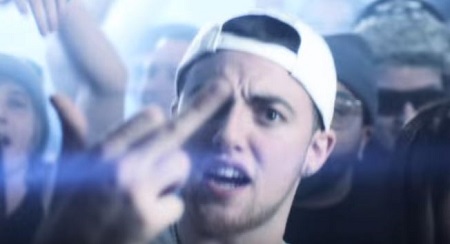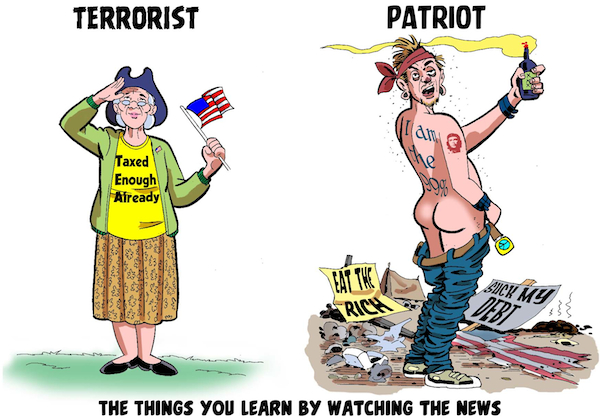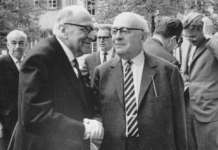I get the desire so many young people have to become activists. I totally get it – I am an activist myself, and have been going back at least to High School.
I was raised in a fairly liberal, atheist household. My first political memory goes back to the Carter/Ford election of 1976. I was five at the time, and I remember watching news about the upcoming election one evening, with my parents. I told them I wanted Ford to win. My parents asked why, and I said, “Because Ford has hair.”
My dad corrected me – Jimmy Carter was the guy with hair. “Oh,” I said, “well then, I want Jimmy Carter to win.”
This was followed by a fairly long dissertation (at least it seemed fairly long to a five year old) about how much of the public votes for the same basic reason I just mentioned. Having hair (more to the point – being good looking) is a political asset.
I started to become a Republican sometime during the Reagan years. I worked a paper delivery route with my best friend, and one day while divvying up papers (we each did half the route), my friend mentioned that he was a Republican. I said that I was a Democrat, and we talked about why we both held the views we held. I realized pretty quickly that my friend could articulate his views – he knew exactly why he liked Reagan – whereas I had only a vague notion of Republicans being against the people and Democrats being against big business. I also began to realize that being against big businesses pits a person against the people big businesses employ. How can you be for the people, while against their employment?
I began to listen to Reagan after that, and began to contrast what Reagan said with what the press reported about Reagan. I began to realize that much of the press viewed Reagan as an evil, racist fool, and that those people were going to report Reagan that way whether it was true or not. I would hear Reagan say something, and then the next day would see in the Kalamazoo Gazette about how Reagan said something very different, along with perhaps a short quote from Reagan, taken grossly out of context.
There was a joke from the Reagan years (it’s an old joke now, so forgive me if you have heard it before), in which Reagan went on a fishing expedition with the Pope. As the boat neared the fishing location, a gust of wind blew the Pope’s hat into the water. Reagan stopped the boat, said, “Just a moment, your holiness,” and climbed out of the boat, walking across the water to the hat. Reagan bent over and picked the hat up, and then walked across the water, back to the boat, and climbed in. “Your holiness, here is your hat,” Reagan said, “I’m sorry if it is a little wet.”
In another boat, nearby, the press corps began writing feverishly, as if in one voice, the next day’s headline: “Ronald Reagan Can’t Swim”.
I took journalism in High School, and was the only Republican in Journalism Class. Our Journalism teacher was adamant that any opinion piece be offset by another opinion piece taking an opposing view. My job, as the only Republican, was to write those opposing views.
I also suggested that we stop charging a quarter for a paper, and instead give the paper for free to every student. We made far more money on advertising than we made selling papers, and I figured we could get more advertising revenue if we could claim the entire school (about 1,600 students) as readers, rather than the maybe quarter of the school population.
One of the side effects of giving the papers away for free was that many more people read the paper, and as a Republican writing opposing opinion pieces, I became a somewhat controversial figure.
At first, I became unpopular, but after a few of weeks I noticed that more and more students were discussing my opinion pieces without scorn. I don’t know how many opinions I changed, but I know I was challenging people to think, and that was having an impact.
I also know that I put a lot of time and research into what I was writing. In many cases, the opinions I was supposed to counter were not something I could disagree with. If someone wanted to post an article on racism being bad, for example, the opposite position would be that racism is good – and that is a message I could never support. I could however write about the racism implicit in the low expectations of the left, or I could write about how racism in the United States had largely been eliminated (and how in a free country, the total eradication of racism is impossible).
When we look at racism as an historic abstract, one thing becomes crystal clear: a free people will tend to become less racist over time, whereas when people compete with one another for political favor (as they do under socialism), they become more tribal. Where tribalism grows, racism follows. My source for that statement is Will Durant’s The Story of Civilization Volume One: Our Oriental Heritage, the first 100 or so odd pages of which should be required reading. I could also cite Milton Friedman or Thomas Sowell.
And it makes sense when one considers the differences between how free market economies, and socialist economies, work.
Under a free market, people produce some good or service (most people providing labor of some kind for employers), and then they sell that good or service. If a white restaurant owner does not want to have black patrons, that white restaurant owner will have at least a 13% smaller market (African Americans making up 13% of the American population), and will make less money. If that owner also excludes Latino Americans, he’s going to have a 30% smaller market than if he or she served everyone. Who wants to refuse money from 30% of the population?!?
In a free market, the more inclusive someone is, the more money they can make, and it really is as simple as that.
If government becomes the provider of things, such as under socialism, then we run into the problem of government not having things to provide. In such a system, government must take from some people, to give to other people. How do we decide who government will take from, and who government will give to? In a nutshell, political organizations form around identity groups, with each identity group currying government for favor over other groups. This does not only encourage tribalism – it essentially forces tribalism to occur. No wonder racism runs rampant alongside socialist systems…
The United States is more socialist than it was when I graduated High School (in 1989), and it is also more racist. Go figure…

I’m against Black Lives Matter for three reasons. One is that the leadership of Black Lives Matter (and by ‘leadership’, I mean the people who created the organization, and who run the national charter) calls Black Lives Matter a communist organization, formed and run by self-described trained communist agitators.
The second reason I am against Black Lives Matter is that it is an inherently tribal movement. Tribalism is baked right into its name.
The third reason I am against Black Lives Matter is that the entire organization is based on a false narrative, as I will show below.
The notion that Black Lives Matter is a given. Of course black lives matter, just as do all lives. Black Lives Matter is, however, not just a statement, but also a political movement, and it is a political movement with a set of demands. Those demands are based on assumptions that may, or may not, be valid.
How many of the people who are a part of the Black Lives Matter movement have taken the time to find out if the assumptions the movement is based on, are true? Is there an epidemic of unarmed black men being killed by the police in our country?
I had someone tell me yesterday that “it <unarmed black men being killed by the police> happens literally hundreds of thousands of times.” This is a factual statement that may, or may not, be true.
There is a database we can use to check that factual statement. The truth is that the police killed 1,003 people in 2019. 250 were black (about a quarter of the total) and 405 were white (about 40% of the total). 55 were unarmed, and of those, 14 were black (about a quarter of the total) and 25 were white (about 45% of the total).
As a percent of the population, African Americans are over-represented in police shootings, both unarmed and otherwise, but then African Americans are also over-represented in the crime statistics. According to FBI statistics, African Americans commit 52% of all violent crimes. Some claim this is based on over-policing of our inner cities, but we can check this number against murder (where the existence of a body prevents over-policing from being a factor) to see if over policing is the case. 52% of all murders have a black perpetrator. Based on the rate of violent crime, we would say that African Americans are under-represented in police killings.
And that makes sense. When a police officer shoots a black person, the police officer is apt to become a YouTube star (and not in a good way), but when a police officer shoots a white person, it is not considered newsworthy, even if someone makes a video of it.
The assumption that black men are being hunted in the streets by our police is false. All of the demands Black Lives Matter makes as a response to this assumption are invalid.
BLM likes to pretend that you are either against what happened to George Floyd and now Jacob Blake, and thus one of their supporters, or you are OK with what happened to George Floyd and Jacob Blake. I ask myself, if I were in High School journalism class, and tasked with writing a counter article, what, in relation to George Floyd and Jacob Blake, could I write? I would write that what happened to these men is horrendous (particularly in the case of George Floyd – what happened to Jacob Blake is far more complicated), but also an anomaly – and then I would go into a full broadside against BLM’s specific demands.
Incidentally, the leading causes of death for white males 19 and under are, in order, accidental deaths, suicide, and cancer. These three things account for 68.7% of all white male deaths below the age of 20. The homicide death rate for white men below 20 is 4.9%. The leading cause of death for young black men is homicide, which accounts for 35.3% of all deaths below the age of 20.
An African American male under the age of 20 is more than seven times as apt to be murdered, as is a white American male of the same age. That’s a lot of dead people. Do the lives of those murdered African Americans matter?
Perhaps even more telling is that homicide remains the leading cause of death for black males in the 20-44 age group, killing 27.6% of the people who die (same source). Only 2.9% of white men in this age group who die are killed by homicide. The rate of homicide for black men 20-44 years old is almost ten times as high as for white men of the same age group. Do those black lives not matter?
As for who is doing the killing, 90% of all people murdered are murdered by someone of the same race. A white person (same source) is 13 times more likely to be killed by a black person, than a black person is to be killed by a white person, so we are not talking about an epidemic of white people killing black people – that just simply is not happening.
In total, 7,407 African Americans were murdered in 2019. The police, in the meantime, killed 14 unarmed black men. Even if we assume that all 14 of those unarmed black men were essentially murdered by the police, the police killed less than two-tenths of a percent of those who were murdered. The other 99.8% of African Americans who were murdered – maybe those lives do not matter to you, but they do matter to me. 7,407 people in one year is a lot of people, and it’s going to be higher this year, thanks to a reduction in policing and the resulting increase in homicides. How many black lives have to be lost before Black Lives Matter accepts that the numbers are going in the wrong direction?
The irony is that most of the people in Black Lives Matter are white liberals who care far more about implementing Karl Marx’ vision than they care about black lives. These white liberals are using black lives to forward a political agenda that has nothing to do with black lives, and many more black lives will be lost because of this.
Someone may try to call me a racist for focusing on black-on-black crime, but I do not blame black people for black-on-black crime. Before the so-called War on Poverty, the crime rate in African American communities was not notably higher than in white communities. The War on Poverty has been incredibly damaging, and particularly in predominantly African American communities, which is not surprising given that the War on Poverty was modeled after Apartheid.
If we want to end racism in the United States, the first thing we need to do is to replace the War on Poverty with programs designed to bring economic opportunities back to our inner cities. We need to lift those who live in our inner cities out of government dependency, such that they can be self-sufficient. Lifting people out of dependency is a form of activism I can get behind, and I can certainly understand the anger those who have been disproportionally affected by Lyndon B. Johnson’s War on Poverty must feel. That anger is real, and justified, but it is misdirected. The police are not to blame. The policies of the political left are…
What I would like to ask other activists to understand is that it is very easy to make the world a worse place, and very difficult to make the world a better place. Every action has a myriad of both intended, and unintended consequences, and while many of the things an activist may work for could have positive intended consequences, whether or not those things should be pushed for will be determined by the unintended consequences as well.
The intended consequences of rioting and looting is to bring focus on an issue. What are the unintended consequences? Businesses leave, in many cases never to return. Those with wealth leave, taking their tax dollars with them. Poverty and dependency in these areas become worse rather than better, making the underlying issues leading to higher rates of crime (and through that, a higher police presence) worse rather than better. In other words, regardless of what activists may intend, Black Lives Matter is making black lives worse.
Sports leagues becoming political increases the awareness of social issues, but the unintended consequences include turning-off the fan base, leading to lower revenues and lower pay for athletes. Some professional teams may go bankrupt because of this. Who does that help?
Athletes, in the meantime, have a tremendous social media presence, and command a tremendous amount of news coverage on their own. If professional athletes leave their social activism out of the sports they play, protesting on their own, out of uniform, they can get their messages across without sacrificing the profitability of the teams they play for, and without reducing the fan-base of their respective sports.
As ironic as it may sound, activism within sports has dramatically reduced the reach professional athletes have as activists. MLB and the NBA are down 40% in ratings since opening weekend. The NFL was down 35% two years in a row, thanks to activism. Now the NHL is going to see its ratings implode. Without a fanbase, who exactly do these athletes intend to reach?
Conversely, if athletes kept their politics out of their sports (being activists on their own time), our professional sports leagues would have continued to thrive. Larger fan bases means more people an athlete can reach on their own.
Professional athletes are not helping their cause by politicizing sports. They are hurting their cause. They would be wise to stop politicizing their respective sports, and then to double-down on activism on their own – ideally by protesting the War on Poverty, and the impact it has had on inner city communities.
As for me, I am still an activist, which is why I write, and though my knowledge base has grown a great deal over the years, my approach to writing is the same as it was in High School. I try to stay in my wheelhouse, and I try to ensure that my activism is focused on the right things. Alexandria Ocasio-Cortez said that “Republicans are more concerned with being factually correct than with being morally correct.” She’s at least half right with regards to me. I recognize that I have no way of knowing whether or not I am morally correct, without first ensuring that I am factually correct. What I would ask Alexandria Ocasio-Cortez to understand, is that she has no way of knowing how morally correct she is, unless she follows the facts, too. By focusing on being morally correct only, irrespective of the facts, Alexandria Ocasio-Cortez has made the same mistake Black Lives Matter makes – whatever her intentions, she is morally bankrupt.
Misplaced or misguided activism causes harm, and regardless of the intent of those activists, if they are misguided, the blood they inadvertently shed is on their hands.




















